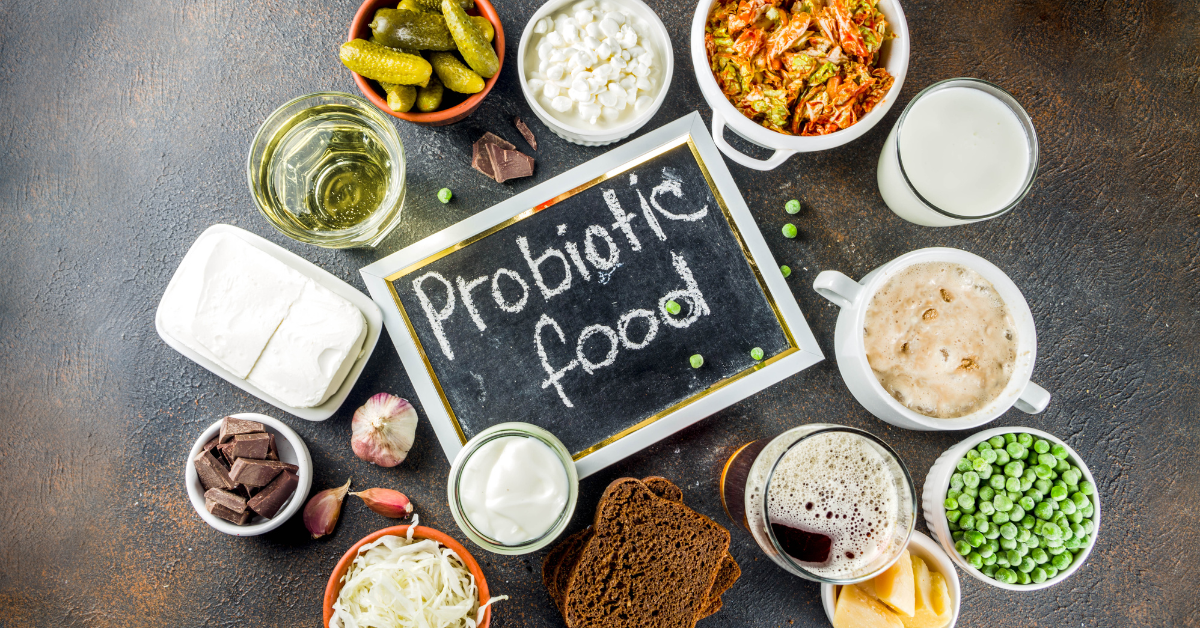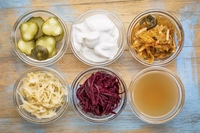Embrace Fermented Foods: The Key to Gut Health and Wellbeing
In the pursuit of a balanced and healthy diet, we often focus on consuming fruits, vegetables, and whole grains while paying little attention to fermented foods. However, these tangy, flavourful delights offer a myriad of benefits that are crucial for our overall health and wellbeing. From improving digestion to boosting immunity, the incorporation of fermented foods into our daily meals can work wonders for our bodies.
Fermented foods have been a staple in diets across various cultures for centuries, revered not only for their delicious taste but also for their numerous health benefits. So, what exactly are fermented foods? They are foods that have undergone a natural fermentation process, where beneficial bacteria, yeasts, or fungi break down sugars and starches, transforming them into compounds like organic acids and gases. This process not only enhances the flavour and texture of foods but also increases their nutritional value.
One of the primary benefits of consuming fermented foods lies in their ability to support gut health. The gut is home to trillions of bacteria, collectively known as the gut microbiota, which play a crucial role in digestion, nutrient absorption, and immune function. Fermented foods are rich in probiotics, live microorganisms that confer health benefits when consumed in adequate amounts. By introducing these beneficial bacteria into our digestive system, fermented foods help maintain a healthy balance of gut flora, which is essential for optimal digestion and overall wellbeing.
Furthermore, fermented foods are known to enhance nutrient absorption. The fermentation process breaks down complex carbohydrates and proteins into more digestible forms, making it easier for our bodies to absorb essential nutrients like vitamins, minerals, and antioxidants. This not only maximizes the nutritional value of the foods we eat but also ensures that our bodies can efficiently utilize these nutrients for various physiological functions.
In addition to supporting gut health and nutrient absorption, fermented foods can also bolster our immune system. A significant portion of our immune system resides in the gut, where it interacts with the diverse array of microorganisms present. By promoting a healthy balance of gut bacteria, fermented foods help strengthen our immune response, making us more resilient to infections and diseases.
So, what are some examples of fermented foods that you can incorporate into your diet? Let’s explore!



This traditional German dish consists of fermented cabbage, which is rich in probiotics and vitamin C. It has a tangy flavour and crunchy texture, making it a versatile addition to salads, sandwiches, or as a side dish.
A staple of Korean cuisine, kimchi is made from fermented vegetables, typically napa cabbage and Korean radishes, seasoned with garlic, ginger, and chili pepper. It is packed with probiotics, vitamins, and antioxidants, and adds a spicy kick to any meal.
A creamy and tangy dairy product, yogurt is made by fermenting milk with live cultures of bacteria. It is a rich source of probiotics, calcium, and protein, and can be enjoyed on its own, with fruit, or as a base for smoothies and dips.
Similar to yogurt, kefir is a fermented dairy beverage made by fermenting milk with kefir grains, which are a combination of bacteria and yeast. It has a slightly tangy flavour and is loaded with probiotics, vitamins, and minerals.
A fizzy, tangy tea beverage, kombucha is made by fermenting sweetened tea with a symbiotic culture of bacteria and yeast (SCOBY). It is prized for its probiotic content, antioxidants, and potential health benefits, and comes in a variety of flavours.
A traditional Japanese seasoning, miso is made from fermented soybeans, salt, and koji (a type of fungus). It has a salty, umami flavour and is commonly used in soups, marinades, and sauces. Miso is rich in probiotics, protein, and antioxidants.
Originating from Indonesia, tempeh is a firm, nutty-textured cake made from fermented soybeans. It is a versatile plant-based protein source and can be grilled, stir-fried, or crumbled into dishes like chili or tacos.
Unlike conventional bread, sourdough bread is made through a fermentation process using naturally occurring wild yeast and bacteria. This results in a tangy flavour, chewy texture, and improved digestibility compared to commercial bread.
Pickling is a form of fermentation that preserves vegetables in a brine solution. Fermented pickles are rich in probiotics and have a tangy, sour flavour. They can be enjoyed as a snack, added to sandwiches, or served alongside meals.










